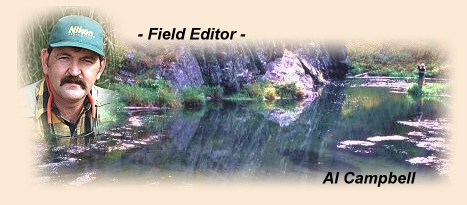|
Well, this is it; the end, the grand finale, the "I can't
believe I actually read the whole thing" part of this
series. We had a contest; somebody won. I'll tell you
more about that in a minute. We played with tools and
toys and hopefully learned something along the way. I
learned that showing someone else what I do is a lot
harder than just doing the work and keeping quiet about
it; but I had fun learning how to play "show and tell"
with imaging software.
For those of you with websites, I would like to remind you
that some of the imaging software on the market is tailor-made
for website creation and Internet publishing. The software
I used the most in this series is one of those products. You
can use what you learned here to publish a nicer looking and
more productive website if you want to.
I just scratched the surface of possibilities in this series.
There are a lot more tools and handy tricks available to
you than I had time to show. In fact, if I took the same
amount of space and tried to show you all there is in just
Photo Impact 8 software, it would take at least a year to
do. You'll have to conquer some of the options by searching
for yourself.
Now, it's time to discuss the contest. This was the most
fun part of the series to me. I had the chance to peak
into the creative minds of some other people and see what
they could do. I'm impressed by the creativity and hard
work a few guys put into this contest. Unfortunately,
there can only be a few winners, but I really appreciate
everyone who sent me a contest entry. I know a couple
of people only had a week or two worth of imaging
experience before they created their entry. Well done guys.
The first place winner, and the one who will receive our
magazine cover page and index page with his name on it is
Jorge Villares from Davenport, Iowa. Here is what
his prize looks like.

And, here is what his entry titled South Holston
Trout - Fall 2001 looks like.
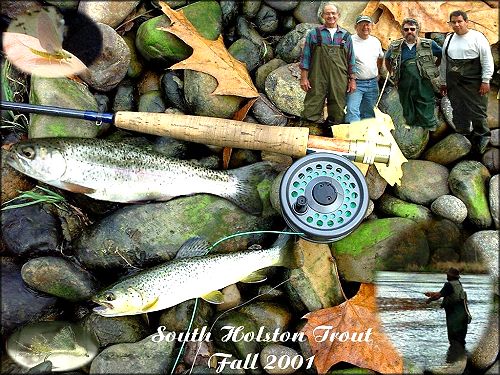
Jorge used Ulead Photo Impact 8 software and images from
a Fuji FinePix 1400 digital camera to create this picture.
If you have been following this series, you're already
familiar with the tools he used to capture those images
in the corners of his picture. The ellipses are easy
to figure out, and the lasso tool was covered well, so
that shouldn't surprise anyone. What might surprise you
is the fact that the original photo only has one fish in it.
The fish closest to the fly rod handle was captured from
another photo and inserted in this one. He also had to
digitally repair the fish image by removing a blade of
grass that was covering part of that fish and remove
part of a rock that was blocking part of the image.
It took a lot of time and detailed work to create
this image, and the image is a work of art. Very
impressive. It could easily be a photo album cover,
or maybe just a great picture hanging on his office wall.
Second and third places were nearly a tie. If you don't
agree with my choice here, I can understand why, but in
the end I used the "overall artistic impression" clause
to pick a winner and backed my choice up by asking an
independent person to choose between the two. That person
made the same choice I made, so I feel better about my
selection.
Second place goes to Brian Jowett of Georgetown, Ontario,
Canada and his image titled Memories...2003.
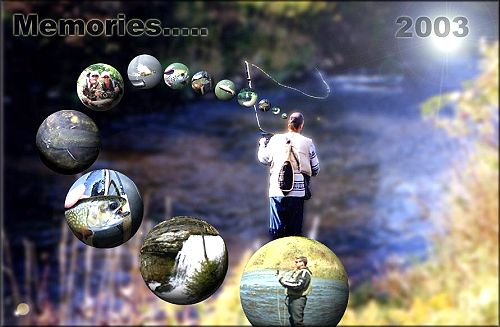
Brian won a print titled "Why Fish 1."
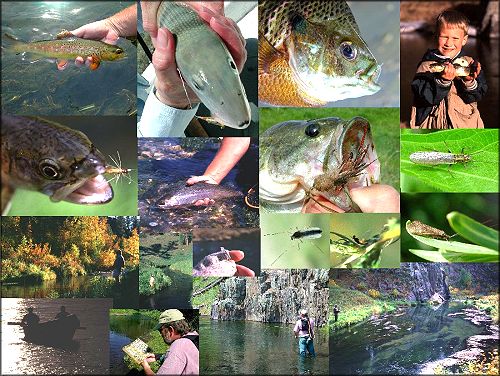
Brian started with a photo he scanned on a flatbed
scanner, then added bubbles with images from an old
Olympus D500-L digital camera. There is a different
image in each bubble. He also added a sunglow or
starburst to the upper right hand corner of his picture.
He used Adobe Photoshop 6.0 to manipulate his images.
Does this look like a calendar cover to you? He didn't
say it was, but that was my first impression.
In third place and oh-so-close to second place is
Rob Knisely from Waynesburg, Kentucky and his picture
titled Solitude Creek, KY.
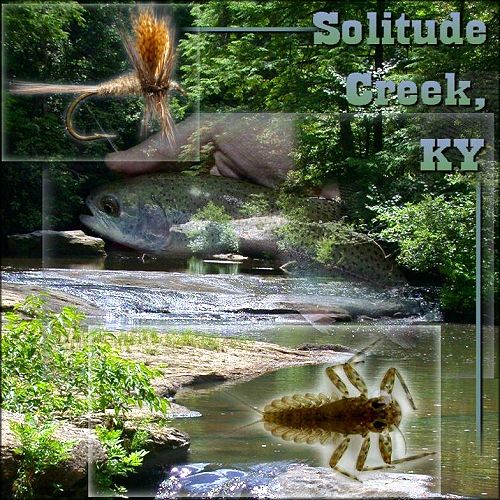
Rob will receive a print titled "Why Fish 2.".
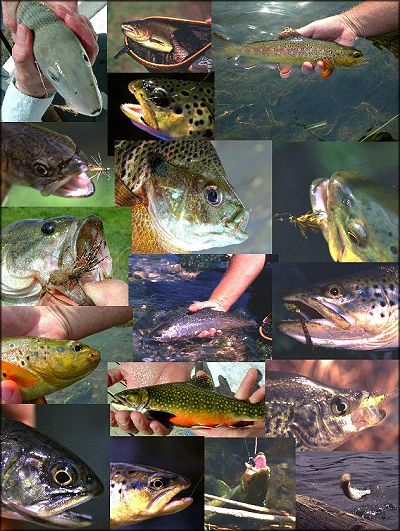
Rob used a Nikon CoolPix 995 digital camera to capture
the images used in this picture, and JASC Paint Shop Pro
7 software to manipulate them. Rob used blending,
tracing and transparency tools at a minimum to create
his picture. I'm sure it took a lot of time and effort
to create. It looks good enough to be a tourism ad.
To everyone else who entered the contest, I thank you
very much. I know you put a lot of time and effort into
your entries, and I appreciate your efforts. And to all
of you, I hope you enjoyed this series and learned a few
tricks from it. The greatest tricks of all are called
dedication and practice. They separate the best from
the rest.
Thanks again, and have a great week.
~ AC
|
